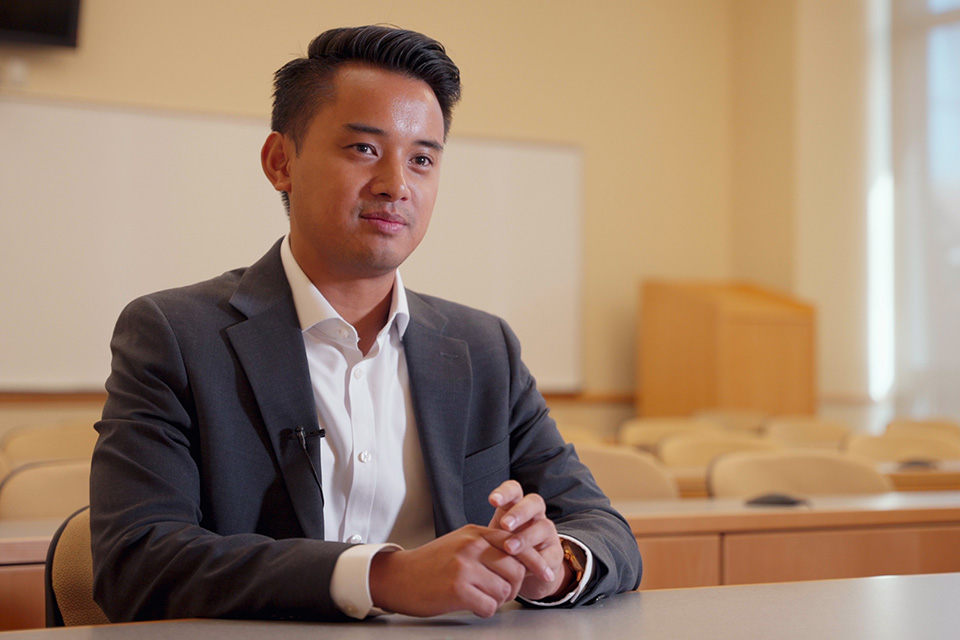My UMSOP Story: Andrew Do, JD, MS ’15, food and drug device lawyer
Andrew Do, JD, MS ’15, is a graduate of the MS in Regulatory Science program. He is an associate at Covington & Burling LLP, working in their food, drug, and device practice group.
What was your path to the University of Maryland School of Pharmacy?
I was an ORISE Fellow at FDA at the time, and this program was just starting at the School of Pharmacy. I thought that it would be a great way to learn more about the other side of FDA. I got to learn about drugs, devices, and the process for the development of drugs and devices and their approvals.
What was your experience like in the program?
My classmates were all from different fields, so it was great working with someone who worked in the manufacturing facility of a drug manufacturer or someone who was a reviewer at FDA. It was great not only learning what we learned in classes but also when we got on calls with our classmates to do projects, we were learning about each other and what they do for a living.
What has been your career path up to now?
I was a biochemistry major in college. When I started the master’s program, it helped me shift more towards the regulatory policy side of learning how FDA works. I ended up going to law school after I graduated from the [MS in Regulatory Science] program. When I was in law school, I knew I wanted to do food and drug law. I think the basis of that was my time at FDA and also the master’s program that helped me decide that I should specialize and work in food and drug law.
I’m a food and drug device lawyer so I do a lot of the regulatory work where our clients will come to us with questions about how to comply with FDA regulations and laws, for example labeling questions or good manufacturing practices questions. I help guide them through how to comply with those regulations and laws.
What interests you in working in this area?
What motivates me and interests me in this career is helping clients grease their wheels in terms of getting their products to market and helping them through sticky situations with FDA, Congress, or other institutions.
I think having lawyers help them get through those situations means faster times for the products to get into the market to help people or make people’s lives better. That’s the rewarding part of my job.
What advice do you have for prospective students considering the MS in Regulatory Science?
My advice to prospective students who are considering this program is to come in with an open mind and be open to learn. Use it as an opportunity to network and meet people from different walks of life and learn about what they do and how they got to where they are because they can give you ideas or help you figure out what you want to do with your career as well.
About the MS in Regulatory Science program: The MS in Regulatory Science program addresses all major areas of drug product regulatory science, including chemistry, manufacturing, and controls (CMC); clinical research; and post-approval surveillance, as well as drug discovery. Learn more and apply today.

